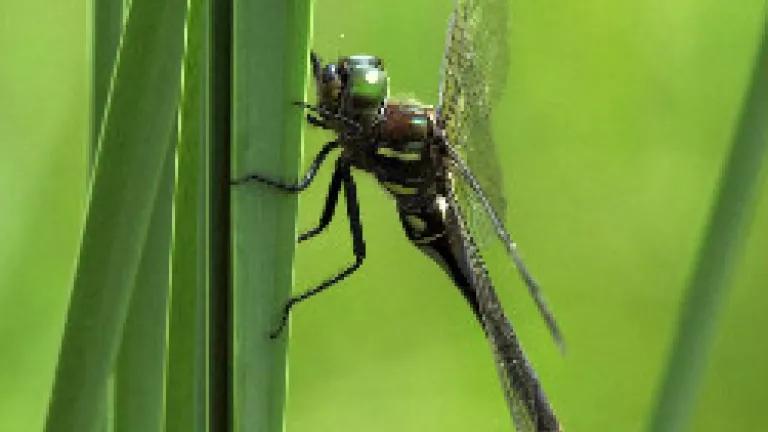
A few months ago, I noted that the U.S. Fish and Wildlife Service had designated "critical habitat" for the Hine's emerald dragonfly, a beautiful insect found only in a few locations in the Midwest.
Two places where Hine's emerald dragonflies can still be found are the Hiawatha National Forest, in the Upper Peninsula of Michigan, and the Mark Twain National Forest, in Missouri. In fact, these forests contains over 13,000 acres of habit the federal government has found "essential" to the dragonfly. Unfortunately, you won't find those 13,000 acres listed anywhere in the dragonfly's protected habitat. Why? According to the Fish and Wildlife Service, excluding these forests from the dragonfly's critical habitat designation "would further enhance the cooperative working relationship with the Forest Service by focusing on activities that are designed to protect and recover the Hine's emerald dragonfly."
If you think there's something screwy about that logic, you're not wrong. In essence, the Bush Administration is arguing that designating critical habitat on national forest lands would somehow inhibit the Forest Service from taking steps to protect the dragonfly and that excluding national forest lands will "enhance" those protections. Treating a federal agency like a private company that has to be given incentives to do the right thing is just nuts. Why does the U.S. Forest Service have to be cajoled to "protect and recover" the dragonfly? That's their job. In fact, the Endangered Species Act specifically provides that "all Federal departments and agencies shall seek to conserve endangered species and threatened species."
As disturbing as the potential harm to the dragonfly is, the potential for this rationale to spread is equally worrisome. If this logic were to be applied across the country, it could mean the end of critical habitat designations on all federal lands. That's why NRDC, along with Center for Biological Diversity, Northwoods Wilderness Recovery, the Michigan Nature Association, Door County Environmental Council, and the Habitat Education Center, sued the Fish and Wildlife Service today.
We're going to ask a Court to strike down the Fish and Wildlife Service's decision to ignore essential habitat on our national forests when it comes to protecting wildlife. I'll keep you posted as things develop.
Photo credit: Carol Freeman Photography

